Ajai Shukla
It is time for India to open a dialogue track with the Quetta Shoora of the Taliban, which increasingly chafes at restraints and controls imposed upon it by Pakistan, write Ajai Shukla
After a decade of deft manoeuvring in Afghanistan with its successful aid policy, New Delhi has taken its eye off the ball.
While Washington tries hard to nudge Mullah Omar into sharing power in Afghanistan -- a political watershed in a decade-long war -- our mandarins have chosen to pooh-pooh the process.
Taking cover behind the Mullah Akhtar Mansour fiasco -- when a "senior Taliban leader" was flown by the Royal Air Force from Pakistan to Kabul last November for peace talks, but turned out to be a money-seeking impostor -- Indian officials dismiss any thought of opening their own track to the Taliban with the toss-off: "Who knows who we would end up talking to?"
But, as I discovered during a recent visit to Kabul, the dialogue with the Taliban is being seriously pursued and it is captivating everyone who matters: the insurgents, the Afghan polity and government, the Americans, the United Nations and practically every Afghan who has time left over from scrabbling together a livelihood
...
'Negotiating is something that Omar disdains'
Lutfullah Mashal from the National Directorate of Security, Afghanistan's key intelligence agency, told me that American negotiators have met Mullah Omar's representatives, including Syed Taib Agha, a Taliban ambassador-at-large.
Besides Agha, the dialogue has also featured Qudratullah Jamal, formerly Mullah Omar's minister for information and culture.
Admittedly, Mullah Omar himself has remained invisible, but that is not necessarily suspicious; negotiating is something that Omar disdains. As Mashal says, "Nobody has seen Mullah Omar, nobody has talked to him, but his trusted people are talking."
This dialogue, however, has created discord between Mullah Omar's Quetta Shoora and Pakistan. Taliban sources lament that Pakistani pressure is forcing Omar to engage with the Americans. Without that, he would be little disposed to talk, being increasingly confident of outlasting the coalition forces in Afghanistan.
The growing contradiction
Image: Mullah Abdul Salam ZaeefGiven the Quetta Shoora's single-point agenda of forcing foreign forces out of Afghanistan, negotiating with the Americans is a humiliating climb-down.
But Islamabad, with its feet held to the fire by Washington, has bluntly told Omar that dialogue is essential, if only to stave off US pressure. But this is a serious loss of face for the Taliban and confuses its rank and file.
Mullah Abdul Salam Zaeef, the Taliban's representative to Pakistan until Islamabad handed him over to Washington for an extended stay in Guantanamo Bay, is among those who best understand the Taliban's complex relationship with Pakistan.
Zaeef points to the growing contradiction between the Taliban's uncompromising rejection of foreign occupation on the one hand; and on the other, Islamabad's weak-kneed acceptance of American drone attacks and Special Forces operations on its territory.
'We are angrier today at Pakistan than America'
Pakistan has also arrested, and handed over to America, dozens of senior Taliban leaders over the last decade. A proud Pashtun like Omar resents being coerced into dialogue by what he considers a duplicitous and craven government.
Says another Talib: "We are angrier today at Pakistan than America. Pakistan is playing a double game, telling the Muslims that we are looking after your interests but actually they are working for America. Thousands of Taliban are in jails in Pakistan even today."
AfPak watchers know that Taliban-Pakistan relations were hardly smooth when Omar called the shots in Afghanistan from 1996 to 2001. Now, however, uneasy coexistence is giving way to deep bitterness within the Taliban.
This widening fault line provides South Block an opportunity to transform its traditional power calculus in the AfPak region, which unquestioningly lumps Mullah Omar and the Quetta Shoora with the ISI-military combine.
Divide and rule is standard ISI practice
There seems little recognition of Mullah Omar's impending collision with Islamabad; nor that "the Taliban" that the ISI mobilises against Indians in Afghanistan belong to the Haqqani network, which Pakistan maintains far more lovingly than the Quetta Shoora.
Divide and rule is standard ISI practice; during the anti-Soviet jihad, it had presided over seven Afghan mujahideen factions, playing one against the other. Today, the ISI effectively maintains two Afghan Taliban by keeping the Haqqani network functionally and financially autonomous from the Quetta Shoora.
But, despite the fear that the Haqqani network generates with its suicide strikes and Al Qaeda linkages, Mullah Omar remains the spiritual and symbolic leader of the Taliban, the Amir-ul-Momineen (Commander of the Faithful).
With his uncomplicated agenda (freeing Afghanistan of foreigners); his straightforward methods (gun-toting insurgency rather than suicide bombings); and his growing disenchantment with Pakistan, he represents a real opportunity for an Indian overture.
New Delhi's dialogue with Mullah Omar will not be easy
Abdul Hakim Mujahid, a former senior Talib official, now deputy head of the High Peace Council, provides the obvious context. "The Taliban are in the battlefield against the world's greatest power, which heads of a coalition of 48 countries. They will take the support of anyone who could support them Pakistan; the Indian government; or the Iranian or Chinese government. This is the nature of the battlefield."
New Delhi's dialogue with Mullah Omar will not be easy.
Omar knows that India supported the hated Afghan communists; then the Soviet Union invaders; then the mujahideen factions that battled the Taliban; and then the anti-Taliban Northern Alliance.
Furthermore, the fissures between Pakistan and the Taliban may not turn out wide enough to exploit. But as South Block prepares for a post-2014 AfPak, it would be a strategic blunder to not even have tried to open communications with a major player in the Great Game.

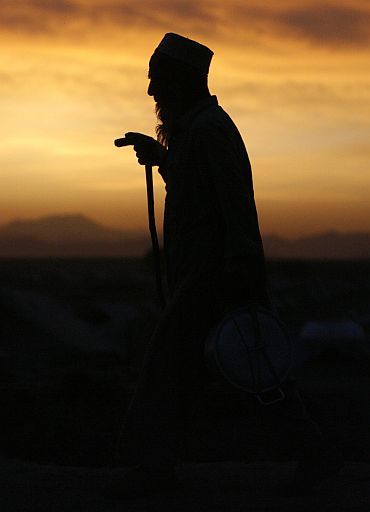
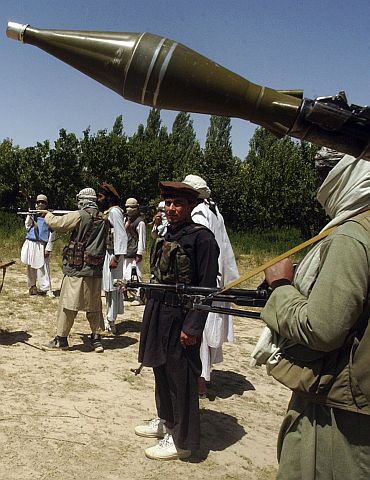
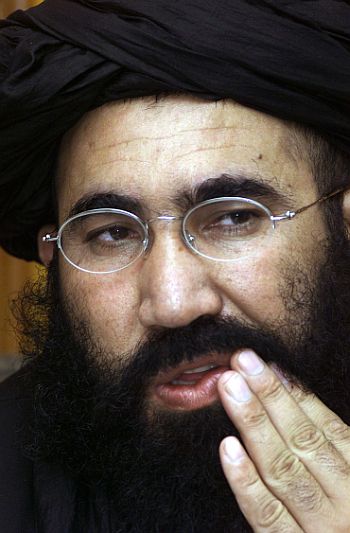
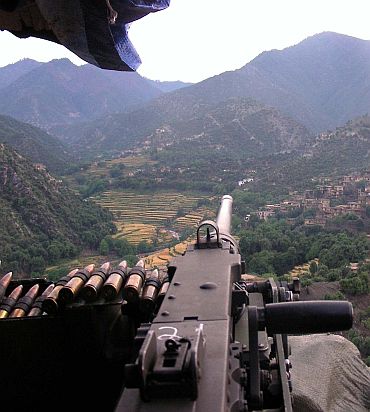

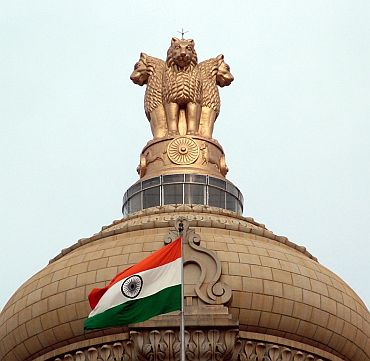

article